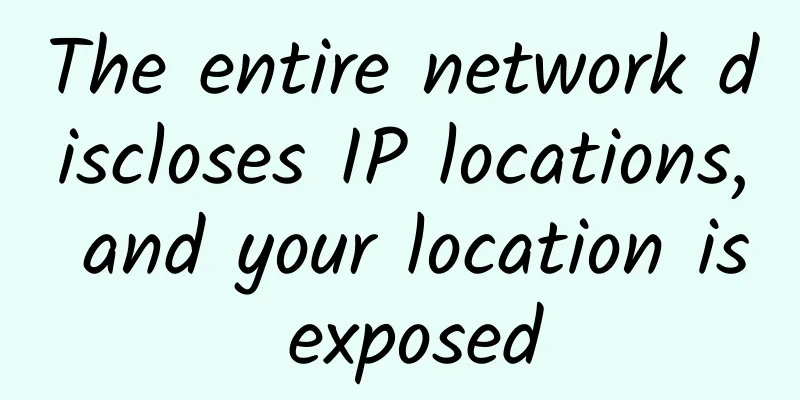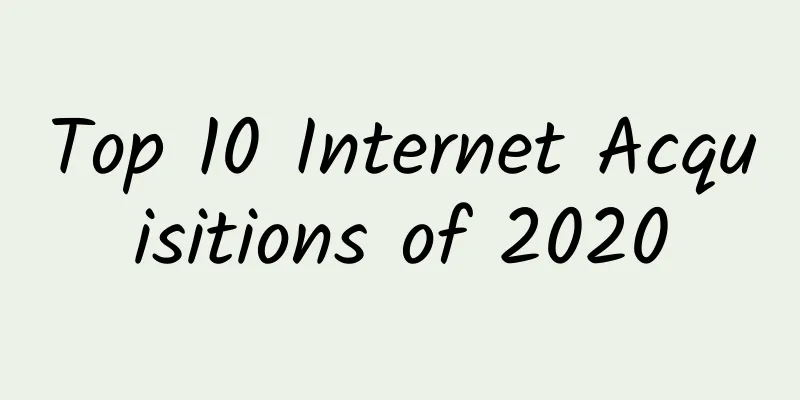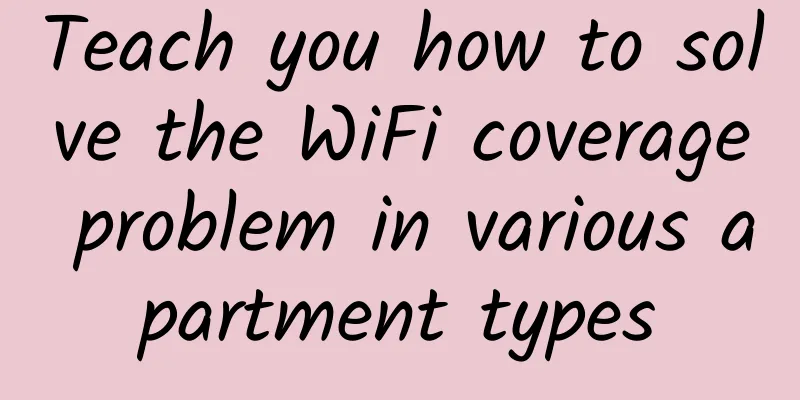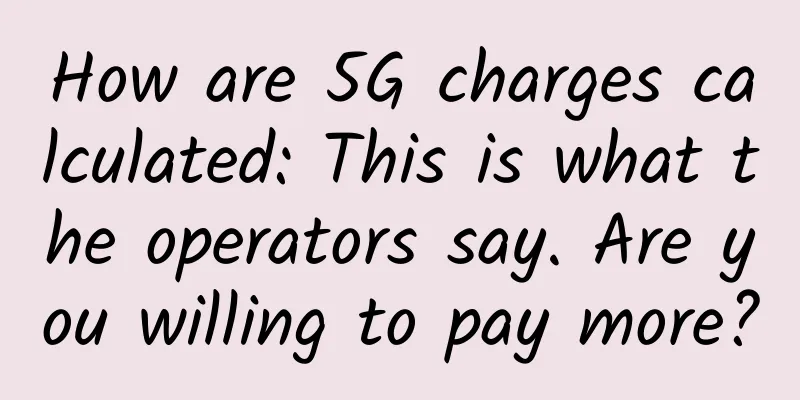The entire network discloses IP locations, and your location is exposed

|
Author | Lu Yao Reviewer | Yun Zhao Recently, IP location display has been fully launched on major social platforms. Following platforms such as Douyin, Xiaohongshu, Weibo, Zhihu, and WeChat, software platforms such as QQ Music, NetEase Cloud Music, and some mobile games also support displaying IP locations. Not only will the IP location be displayed when publishing content, but even comments and votes will display IP location information. Now, users' every word and action will show their location. It seems to be a minor change, but it has caused an uproar on the Internet. 1. Internet chaos breedsIn 1993, Steiner, a cartoonist for The New Yorker, created an absurd cartoon titled “On the Internet, No One Knows You’re a Dog.” Although exaggerated, it truly reflects the virtuality and anonymity of the Internet world. You can say things that you normally wouldn’t dare to say, do things that you normally wouldn’t dare to do, and even to some extent, become the person you want to be. Under such circumstances, chaos on the Internet has arisen. For example, regional attacks and discrimination have occurred from time to time, and some bloggers and big Vs have even used their so-called influence to make false statements. There are also some "keyboard warriors" who blindly follow the trend, attacking others without reason and carrying out cyber violence.
Under the huge protective umbrella of the Internet, malicious people are spreading their malice without restraint, not knowing that they may have become accomplices in killing lives. If they are allowed to develop, it will be very detrimental to the healthy development of the Internet. Faced with this smoky and chaotic network environment, relevant departments have finally issued policies to regulate the Internet platform system by displaying the IP territorial function and create a healthy and civilized Internet environment. With the public display of IP locations, not only have the "keyboard warriors" become more restrained, but also various food bloggers and domestic and foreign big Vs have been exposed to their "original form". For example, the IP location of a well-known overseas blogger is actually in China, and many "local food, drink and entertainment bloggers" are in Hunan, etc. The collapse of the long-established personal image makes people feel embarrassed and helpless. Image from the Internet 2. Is there an invasion of privacy?In the early years when Tieba was still popular, you could include an address when posting, which could be accurate not only to the city but also to the street. However, at that time, Tieba's support for this function was closed. Now, with the advancement of policies, the IP addresses of major platforms are almost all forced to be public, and users are not given the right to close them. Many netizens do not agree with this practice. After all, this behavior is not authorized by themselves, and they are also worried about whether their personal privacy will be leaked. From the user's perspective, they will definitely think that privacy is involved. Some netizens said: "Just leaving a message to the public account has exposed my location. Even if it is a good thing, I may start to consider whether it is appropriate." But in fact, considering privacy protection, according to regulations, only the IP location is displayed to the province in China and to the country abroad, and there is no more detailed city, district, street and other more specific geographical location information. Therefore, it does not involve the issue of leaking private information. And according to the existing laws and regulations, the answer is that it does not involve privacy. IP location is not equal to IP address, which is unique. According to the definition of the Personal Information Protection Law, it is "information of an identified or identifiable natural person recorded electronically or otherwise." At the same time, according to the provisions of the Civil Code: “Personal information is any information recorded electronically or otherwise that can identify a specific natural person alone or in combination with other information, including the natural person’s name, date of birth, ID number, biometric information, address, telephone number, email address, health information, whereabouts, etc. The private information in personal information is subject to the relevant provisions on privacy rights.” In other words, IP location information only displays the province, autonomous region, municipality or country, so it does not belong to personal information and is not protected by the Personal Information Law. At the same time, the following two points should be taken into consideration: 1. IP location cannot be used to infer a person's identity, family background and other detailed information. 2. The information displayed by IP location is the IP address assigned when accessing the Internet, not the current location. Although this move will bring inconvenience to users, this inconvenience obviously does not reach the level of privacy infringement. It just provides a more intuitive reference dimension for everyone to browse information. 3. Illegal means to change IP locationAfter the launch of the display of IP location, some netizens found that the IP location of some bloggers with problematic locations quickly changed back to the location of their accounts. This is because the gray industries of the Internet, such as paid IP proxy and IP location change, have become popular again. Various IP agents are everywhere, and the prices are very cheap. On some trading platforms, some merchants are selling "IP location switching" servers, which can be used on platforms including Douyin, Kuaishou, Weibo, etc. Image source: an e-commerce platform Through the services of the IP proxy platform, you can change the IP location at will, and "changing countries" can be seen everywhere. Legally, there are no relevant penalties for using IP proxies to access the Internet, but using proxy IPs still carries certain risks. Once a proxy IP is hacked, the account passwords, records, and other information generated may be at risk of being leaked. Moreover, many criminals also use dynamic IPs to spread rumors, commit fraud and other illegal and criminal acts to evade police crackdowns. Currently, major platforms are cleaning up these IP gray products and sending violation notices to merchants selling them, requiring them to immediately delete the products. 4. Be responsible for what you say onlineAfter the outbreak of the Russia-Ukraine conflict, many netizens who claimed to be in the area appeared online and spread a lot of false information online, causing extremely bad effects. For this reason, Weibo launched the function of displaying IP location, with the aim of maintaining a healthy and orderly network environment. Image source: Weibo With the launch of the "Clear and Bright Special Governance Action for Cyber Violence" by the Cyberspace Administration of China, we have also seen major website platforms actively cooperating to establish and improve long-term cyber violence governance mechanisms, establish and improve monitoring and identification, real-time protection, intervention and disposal, tracing and accountability measures, and carry out full-chain governance against cyber violence. Image source: China Internet Information Office There is no reason for the Internet to become a lawless place. In the future, the Internet will change from a "sun umbrella" to a "transparent umbrella", and everyone must be responsible for their own words and deeds. Of course, IP location is only a way to alleviate the problem. Its purpose is to help the majority of netizens see through those bad behaviors such as malicious rumors and traffic grabbing, and it is a means to prevent ordinary people from being misled. However, the existence of gray industries makes it extremely difficult to completely solve the problem. It is more effective for relevant departments and Internet companies to take more powerful measures to jointly prevent the problem. However, if we want to increase governance efforts, users may be faced with providing more personal information. In this case, how to protect user privacy should be the first issue to be solved. |
<<: How 5G, edge computing, and IoT can modernize traditional enterprises
>>: AWS launches 5G service, officially enters the mobile network market
Recommend
[Black Friday] Launchvps 40% off, 1G memory KVM monthly payment starts from $2.57
Launchvps released a Black Friday discount plan, ...
BGPTO: Japan/Singapore CN2 GIA server $64/month, E3-1230v3/16GB/480G SSD/10-100M bandwidth
It's been a while since I shared information ...
Want to migrate to the cloud at a low cost? Of course, you can’t miss the best money-saving strategy on 11.11!
[51CTO.com original article] The 2018 11.11 Shopp...
What does the battle for AI spectrum mean for 5G?
With the rapid development of smart cities, every...
Wi-Fi 6 Release 2 new standard released: faster upload, lower latency, more energy-efficient
Wi-Fi 6 has made significant progress compared to...
SRv6—A killer for 5G technology implementation
The development of 5G services has put forward hi...
The future of work: In a hybrid world, office space cuts are coming
[[440952]] As the pandemic continues to spread, m...
Exclusive for newcomers of Hengchuang Technology: Hong Kong cloud server is 28 yuan for the first month/220 yuan for the first year, and the monthly payment of Hong Kong server is 900 yuan
Domestic cloud service providers such as Alibaba ...
Opportunity or chicken ribs? eMTC should not follow the NB-IoT price war
[[255921]] Recently, the official website of the ...
Digital-vm 50% off, US/Japan/Singapore VPS monthly payment starts from 3 USD, 1-10Gbps unlimited traffic
There is only half a month left in 2023, and vari...
Lenovo Nettop and GDS have reached a strategic cooperation to inject strong momentum into the development of the digital economy era
On May 25, 2021, Lenovo Lingtuo Technology Co., L...
What is the principle of communication? It turns out to be so simple
What is Communication? Simply put, communication ...
Which parameters need to be tuned to support millions of long connections?
File descriptor limits System-level limit: The op...
iWebFusion dedicated server special promotion starting from $45/month, 5 data centers including Los Angeles are available
iWebFusion (iWFHosting) is still selling Clearanc...
Huawei awards the father of Polar code to pay tribute to basic research and exploration spirit
[Shenzhen, China, July 26, 2018] Today, Huawei he...









